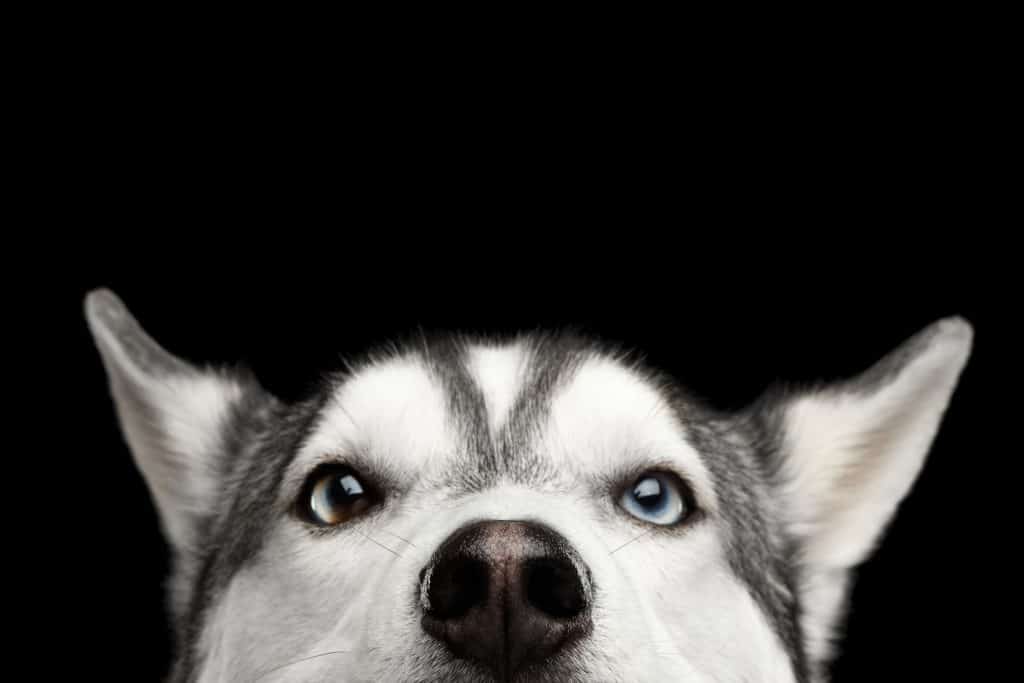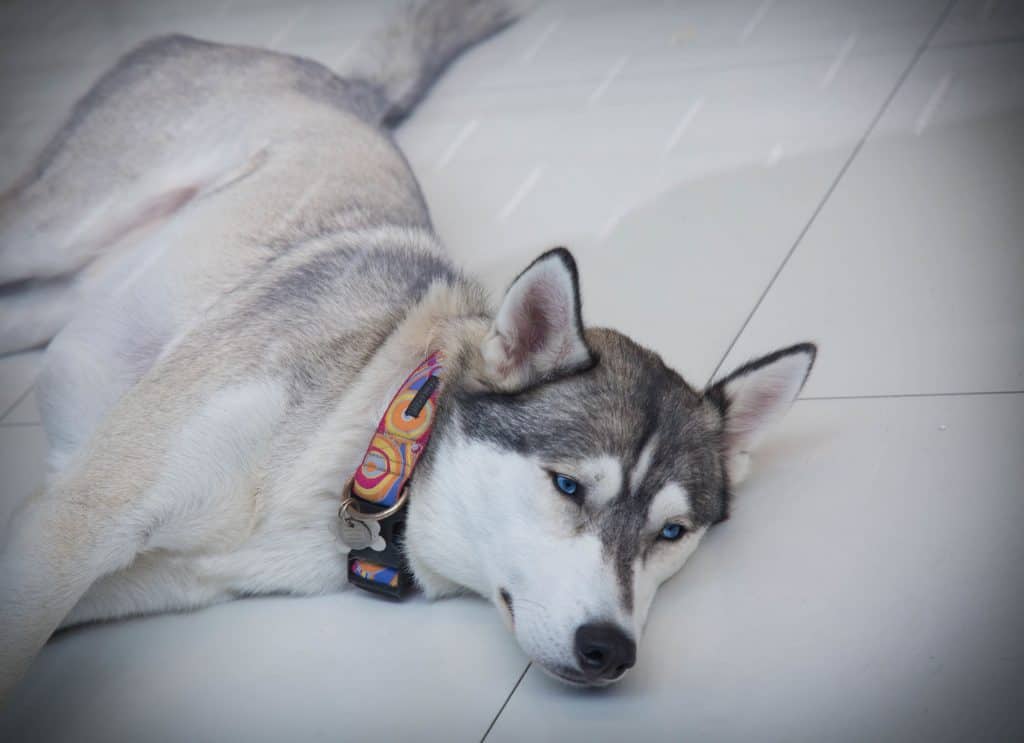When to Neuter a Husky

If you own a male Husky, there will probably come a time where you will wonder what age is best for him to get neutered.
It can be difficult to decide on your own since you might be unsure whether he is too young or too old to undergo this surgery. Luckily for you, I did some research to provide a guide for you.
What is the best age to neuter a husky?
You should neuter your male Husky when he is between 6 to 12 months old. Adult dogs can be neutered at any age, however. The neutering operation will have impacts on your Husky’s behavior and health, such as making them less aggressive and at less risk for various health disorders.
At times it can be difficult to know as an owner what is best for your dog. This is especially tricky when it comes to the topic of neutering.
This can be complicated since it has its fair share of pros and cons. Overall, neutering your dog will be up to you.
It is no one else’s decision. Whatever your decision, you should be educated on this procedure beforehand.
Recommended Reading: How To Take Care Of A Husky Puppy: A First-Time Owner’s Guide
The Best Age to Neuter Your Dog
First and foremost, an adult dog can be neutered at any age, though it is recommended that the best time for them to be neutered is before they hit sexual maturity.
For a long time, the age that was recommended for neutering was 6 to 9 months. The current recommendation is for your dog to be older than this, but it is not uncommon for some owners to have their dogs neutered when they are 4 months old.
Shelter pets will need to be sterilized by 4 months of age. This is because many of the shelters neuter puppies before they can be put up for adoption.
The puppies recover from the procedure much faster than the adults. In the end, they will grow just as much, and they can even be a little taller if they were neutered at a later age.
What to Expect From The Surgery
If you are worried about your pup being able to feel the entire procedure, don’t worry.
They are completely put under during the surgery, either by injection or inhalation. Sometimes during the
When it comes to the healing process, some doctors prefer to apply absorbable stitches, surgical staples, or skin glue to close the incision.
Their choice all depends on the age and size of your pup, and it is up to their personal preference as well.
When it comes to where the incision is made, for puppies it is usually in the scrotal sac. However, if their testicles have not dropped, an incision on the stomach may be necessary.
For adult dogs, the incision is made on the base of the penis in front of the scrotum.
How to Care for Them When They Come Home
Since your dog is given anesthesia before the procedure, chances are when they come out of the procedure they will be a bit woozy. This will be how they act until it completely wears off.
Some dogs can be ready to go home after the procedure, while others will need to stay at the clinic overnight.
Once you head home with your pup, he can be completely fine within hours, though you will need to limit the amount of activity they will be doing for the next few days.
Watch for any developing problems and return to the vet if you’re concerned.
If the doctor used stitches to seal up your pups incision, you dog will need to return to the clinic to have those stitches removed in about a week.
The Pros of Male Neutering

There are several things that make neutering your pup worth it, both for you and your dog.
Since neutering creates a reduced amount of testosterone, if your pup was a bit aggressive and showed his dominance often, it will not occur as often as it did before.
Testosterone is the fuel that charges a Husky’s most unwanted behavior.
An example of a few of their unwanted behaviors would be peeing all over your home (which is a way they mark their territory). It will also reduce their tendency to fight with other dogs in a show of competition.
Another benefit to a neutered dog is that they are likely to be more calm. Some dogs experience heat, and that can cause them to become overexcited and go in search
In the midst of their excitement and their escape, there is the risk of them catching diseases. They can even become lost, which is something no one wants for their dog.
The most notable advantage of neutering your pup is the decline in
There have been cases where male dogs with enlarged prostates have trouble urinating since it affects their bowel movements. If that is something is happening with your pup, don’t worry.
If it is intact, this problem can be solved by neutering. Though it can become more difficult to complete the process, so it is advised to neuter the dog from the beginning in order to prevent it from happening.
There is also the option of castration. This is known to prevent testicular cancer and
Overall the majority of these pros fall under things that are of benefit to the owner, simply because it affects behavioral characteristics much more than the physical benefits for the dog.
The Cons to Male Neutering
Despite the benefits of having your dog neutered, some disadvantages should be noted as well.
The first disadvantage is that neutering does not guarantee a change in your dog’s behavior. Dogs have behaviors that frankly go beyond hormones.
For example, some dogs have learned to lift their leg when urinating. So they will keep doing that after they are neutered.
It is even possible for some undesirable behaviors to disappear after the procedure, but your dog can become more aggressive after the procedure anyway. Nothing is guaranteed.
Sometimes this procedure can cause urinary incontinence. This does not happen often, but there is a small chance of it happening to your pup. This usually happens if the surgery happens before their bladder is
Over time, as your pup grows older, it will be typical for its muscles to be weaker than usual, leading to the occasional leak.
That is why neutering is sometimes not recommended until your pup is 6 months of age.
The procedure can affect the texture of your dog’s coat. Neutering is initiating hormonal change in your dog, and because of that, there will be some physical changes to your pup.
A common change seen by many owners in their dogs is the change in their coat. Once the procedure is completed, some dogs will experience that change in the growth pattern of their fur coat.
Not to worry though, this change does not affect your dogs overall health in any way. The only problem might be your pup’s sensitivity to hot or cold temperatures.
Neutering can affect the maturation process of your pup. As the owner, it is important for you to discuss whether the procedure will benefit your dog.
When young dogs are neutered, they end up maturing differently than those who are neutered at a later age.
Some benefit from the procedure, but others are far better off not receiving the procedure at all.
This procedure can even cause or increase different health risks.
Dogs that are neutered before 12 months can receive an increased risk of hypothyroidism, cognitive impairments, osteosarcoma, and orthopedic disorders.
Recommended Reading on Huskies
- Husky Puppies – How To Take Care Of A Husky Puppy
- Husky Pups – Teething, Biting, and Chewing
- Husky Temperament: What’s it Like Owning One?
- Huskies as Pets: Costs, Life Expectancy, and more
- Are Huskies Good with Kids? A Guide for Parents
- How big do Huskies get? (Plus size info for Husky mixes)
- 5 Factors Affecting How Much Huskies Costs
- Husky Rescue Guide
- At What Age Do Huskies Stop Growing?
- The Ultimate Guide to What Huskies Can (And Can’t) Eat
- How to Get Huskies to Calm Down (Answered!)
Related Questions
How long does it take for a male dog to recover from neutering?
On average, it can take up to 14 days for the incisions on your dog to heal. It is best to keep your pup away from physical activity for about a month. The operation site will be sensitive to infection, so keep them in a safe and clean environment.
Will my dog change after being neutered?
Your dog will change physically and behaviorally after being neuteres, but this is often for the best. They will be less aggressive and safer from diseases and disorders.
How long does a dog have to wear a cone after being neutered?
You must keep the cone on your dog’s head for 14 days after they are neutered in order for the incisions to heal properly without them bothering it.
